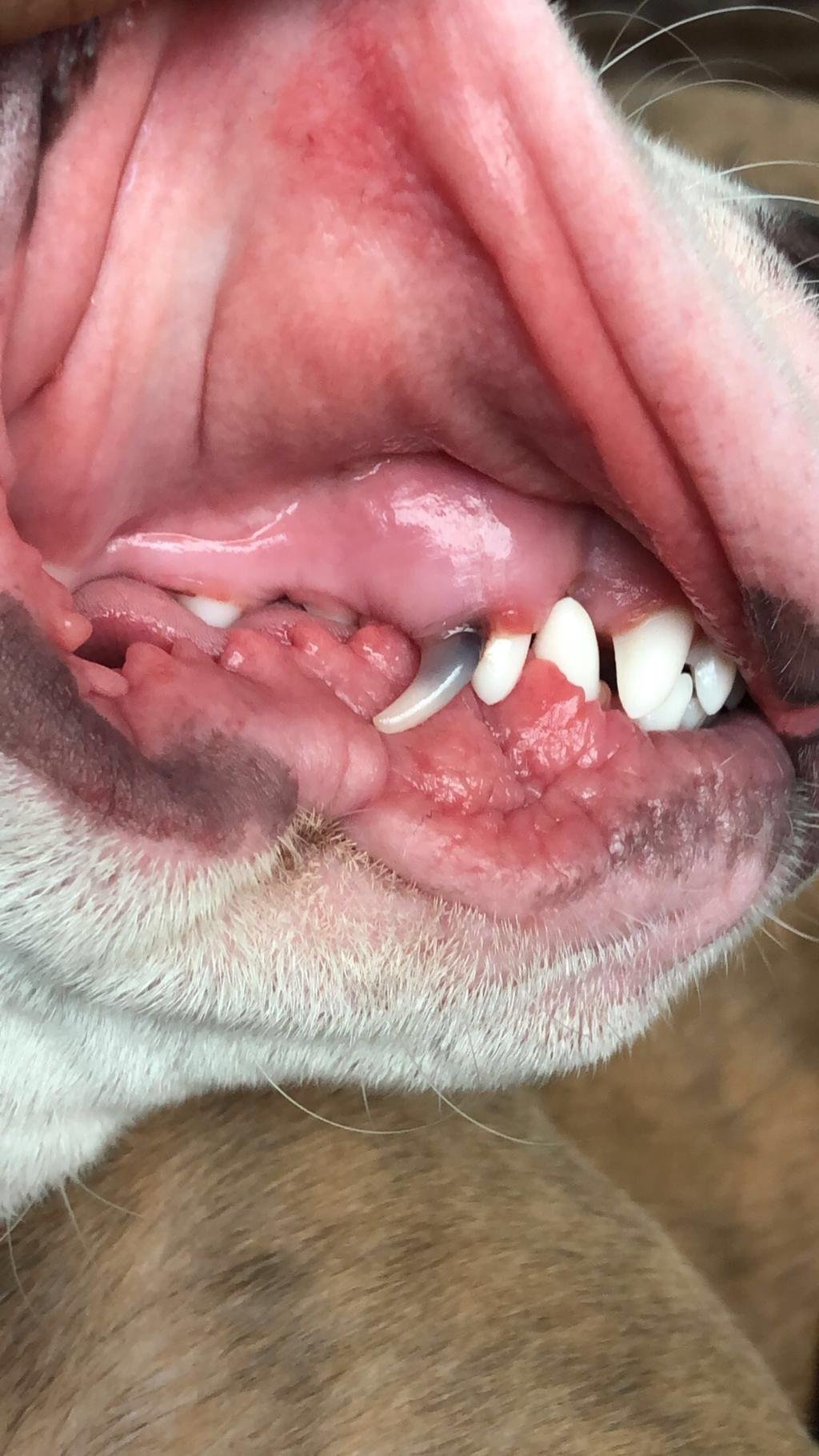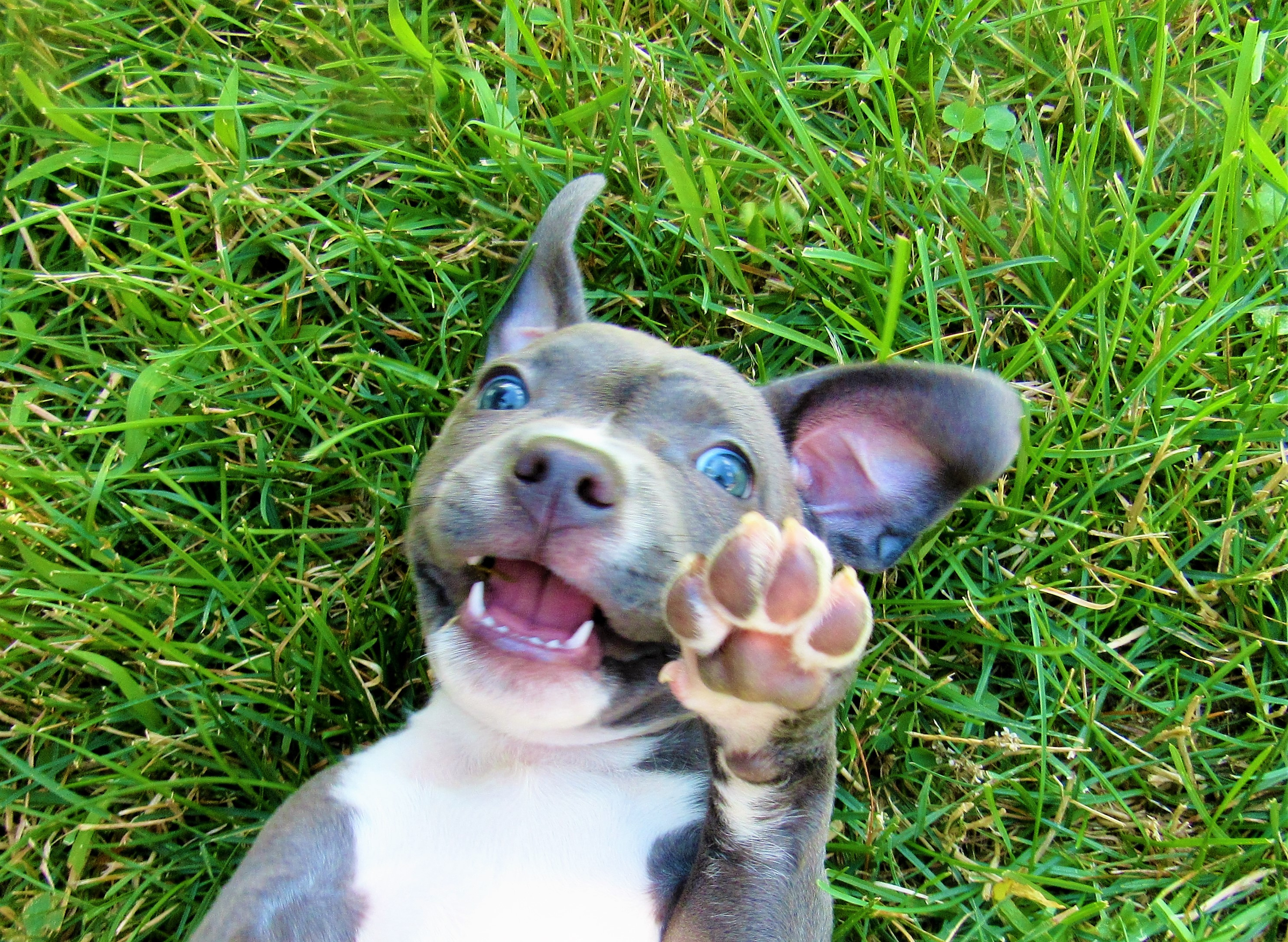Did you know that pitbull puppies go through a teething stage just like human babies? During this time, they can become quite the chew machines, leaving behind a trail of destroyed shoes and furniture. But when exactly do pitbull puppies lose their baby teeth?
Pitbull puppies typically start losing their baby teeth between the ages of 3 and 6 months. This is when their permanent teeth start to come in and push out the baby teeth. It’s important to provide them with appropriate chew toys to help soothe their sore gums and prevent them from gnawing on household items. By understanding the timing of their teething process, you can better support your pitbull puppy’s dental health and protect your belongings from their tiny yet determined jaws.

When Do Pitbull Puppies Lose Their Baby Teeth?
Pitbull puppies, like all dogs, go through a teething process as they grow. Just like human babies, puppies have baby teeth that eventually fall out to make room for their permanent adult teeth. Understanding the timing of when pitbull puppies lose their baby teeth can help pet owners monitor their dog’s dental health and ensure a smooth transition to healthy adult teeth. In this article, we will explore the timeline of pitbull puppy teething, factors that may affect the process, and tips for caring for your puppy’s teeth during this stage.
The Teething Process in Pitbull Puppies
During the first few weeks of a pitbull puppy’s life, they are born without teeth. However, just like human babies, their baby teeth, also known as deciduous teeth, start to emerge around 2 to 4 weeks of age. The entire teething process typically lasts around 6 to 8 months, with puppies losing their baby teeth and gaining their adult teeth in the process.
The teething process begins with the incisors, which are the small front teeth. These usually start falling out around 3 to 4 months of age. Next, the canine teeth, also known as fangs, will start to fall out around 4 to 5 months. Finally, the premolars and molars, which are located towards the back of the mouth, will follow suit between 5 to 7 months of age. By the time a pitbull puppy reaches 8 months old, they should have all their permanent adult teeth.
Caring for Your Pitbull Puppy’s Teeth During Teething
Teething can be a challenging time for both puppies and their owners. The discomfort caused by a mouthful of new teeth can lead to behavior changes and an increased desire to chew on objects. Here are some tips to help you care for your pitbull puppy’s teeth during this stage:
1. Provide appropriate chew toys: Give your pitbull puppy safe and durable chew toys specifically designed for teething puppies. These toys can help soothe their sore gums and satisfy their natural urge to chew. Avoid hard objects that could damage their new teeth.
2. Regularly check for loose or missing teeth: Monitor your puppy’s progress by gently examining their mouth. Look for any loose or missing teeth, as this is a normal part of the teething process. If you notice any retained baby teeth or signs of infection, consult your veterinarian.
3. Maintain good oral hygiene: Start a dental care routine early by brushing your pitbull puppy’s teeth with a dog-friendly toothbrush and toothpaste. This helps prevent tartar buildup and promotes healthy gums. Introducing this routine during teething will help your puppy become accustomed to the process.
4. Schedule regular veterinary check-ups: Regular visits to the veterinarian are essential for monitoring your pitbull puppy’s dental health. Your vet can also provide professional cleanings and address any concerns or issues that arise during the teething process.
Factors That May Affect the Teething Process
While the timing of pitbull puppies losing their baby teeth is generally consistent, there are a few factors that may affect the teething process. These factors can vary from puppy to puppy and may include genetics, nutrition, and overall health.
Genetics: Just like any other physical trait, the timing of teething can be influenced by genetics. Some pitbull puppies may start and finish teething earlier or later than the average timeline.
Nutrition: A well-balanced diet plays a crucial role in dental health. Ensure your pitbull puppy is receiving proper nutrition to support healthy teeth and gums. Consult with your veterinarian to determine the best diet for your puppy’s specific needs.
Overall Health: Health issues, such as infections or malformations, can impact the teething process. It’s important to monitor your puppy’s overall health and seek veterinary care if you notice any abnormalities or concerns.
By being aware of these factors and taking appropriate care during the teething process, you can help ensure that your pitbull puppy grows up with a healthy set of adult teeth.
The Benefits of Monitoring Your Pitbull Puppy’s Teething
Monitoring your pitbull puppy’s teething process and providing proper care offers several benefits. These include:
1. Identifying potential dental issues: Regularly checking your puppy’s mouth allows you to spot any problems early on. This can help prevent or address potential dental issues such as retained baby teeth or tooth infections.
2. Promoting good oral hygiene habits: Starting a dental care routine during the teething stage sets the foundation for lifelong oral health. By establishing good habits early on, you can help prevent dental problems in the future.
3. Reducing discomfort for your puppy: Teething can be a challenging and uncomfortable time for puppies. By providing appropriate chew toys and monitoring their progress, you can help alleviate some of their pain and discomfort.
Remember, the teething process is a natural and necessary part of your pitbull puppy’s development. By understanding the timeline, caring for their teeth, and addressing any concerns, you can ensure that your puppy’s transition to adult teeth happens smoothly.
Key Takeaways: When Do Pitbull Puppies Lose Their Baby Teeth?
- Pitbull puppies start to lose their baby teeth around 3 to 4 months of age.
- During the teething process, it is normal for puppies to have swollen gums and to chew on objects to relieve discomfort.
- By 6 to 7 months of age, most pitbull puppies will have lost all their baby teeth.
- It is important to provide appropriate chew toys and objects for pitbull puppies during the teething stage to prevent them from chewing on inappropriate items.
- If a puppy is not losing their baby teeth or is experiencing dental issues, it is recommended to consult a veterinarian for an examination.
Frequently Asked Questions
Are you curious about when pitbull puppies lose their baby teeth? We’ve got you covered! Below are some common questions and answers to help you understand this crucial stage of a pitbull puppy’s development.
1. How long does it take for pitbull puppies to lose their baby teeth?
Pitbull puppies typically start to lose their baby teeth around 12 to 16 weeks of age. The process usually takes a few months, with the adult teeth fully replacing the baby teeth by around 6 to 8 months.
During this time, it’s important to provide appropriate chew toys and supervise your puppy while they’re chewing. This helps ease any discomfort and prevents them from chewing on inappropriate items, like furniture or shoes.
2. What are some signs that pitbull puppies are losing their baby teeth?
When pitbull puppies are losing their baby teeth, you may notice some common signs such as increased drooling, mild bleeding, and chewing on objects more frequently. They may also have temporary bad breath as the baby teeth become loose.
It’s essential to keep an eye out for any excessive bleeding, severe pain, or signs of infection. If you have any concerns, it’s best to consult with your veterinarian, who can provide guidance on what is considered normal during this phase.
3. How can I help my pitbull puppy during the teething process?
There are several ways you can help your pitbull puppy during the teething process. Providing them with appropriate chew toys, such as rubber or nylon ones specifically designed for teething puppies, can help alleviate discomfort and satisfy their natural urge to chew.
You can also try giving them frozen treats, such as frozen carrots or a wet washcloth that has been frozen, as the cold can help numb their gums. Additionally, regular dental care, such as brushing their teeth with a dog-friendly toothpaste, can promote good oral health.
4. Is it normal for pitbull puppies to swallow their baby teeth?
Yes, it is normal for pitbull puppies to swallow their baby teeth. In most cases, the teeth are small enough to pass through their digestive system without any issues. Swallowing the teeth is a natural part of the process and shouldn’t cause harm to your puppy.
If you have concerns or notice any unusual symptoms after your puppy has swallowed a tooth, it’s always a good idea to consult with your veterinarian for further guidance.
5. What should I do if a baby tooth doesn’t fall out on its own?
In most cases, baby teeth will naturally fall out on their own. However, occasionally, a baby tooth may not loosen or fall out as expected. If this happens, it’s best to consult with your veterinarian.
Your vet may need to examine your puppy’s mouth to determine if the retained baby tooth needs to be removed. Retained baby teeth can sometimes cause issues, such as crowding or misalignment of the adult teeth, so it’s important to address the situation to ensure the proper development of your pitbull puppy’s dental health.
🐶🦷¿When do PUPPIES LOSE BABY TEETH?
Summary
Pitbull puppies typically start losing their baby teeth at around 4 to 6 months old. Just like human babies, they’ll get a new set of teeth as they grow. It’s important to provide them with chew toys to help with the teething process and prevent them from chewing on things they shouldn’t.
During this time, it’s crucial to take care of their oral hygiene by brushing their teeth regularly. This promotes good dental health and prevents any potential dental issues in the future. Remember, a happy and healthy pup starts with a strong set of teeth!

